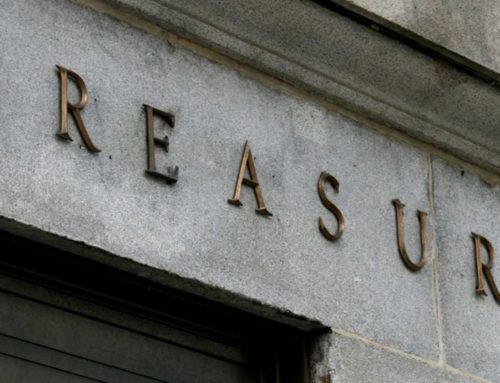Today, Taxpayers for Common Sense alongside National Taxpayers Union, the Competitive Enterprise Institute, and the Nonproliferation Policy Education Center sent a letter to Congress urging members to oppose an additional $9 billion in authority to the Department of Energy's Nuclear Loan Guarantee Program in a continuing resolution.
The White House asked for a $9 billion in additional authority, which would increase the total nuclear loan program to $27.5 billion, to cover a total of four nuclear projects ($8.3 billion has been allocated for two reactors in Georgia). It also wants Congress to cover $380 million in subsidy costs for renewable and efficiency projects.
A PDF of the letter can be viewed
Text of the letter can be read below.
|
December 8, 2010
OPPOSE WASTEFUL $10 BILLION INCREASE FOR DOE
Today, we join together to urge Congress not to increase available funding for the Department of Energy Innovative Technology Loan Guarantee Program as part of any long-term Continuing Resolution. House Appropriations Committee Chairman Daniel Obey (D-WI) has proposed a $7 billion increase in loan authority for nuclear power and an additional $3 billion in lending authority for fossil fuels. The White House asked for a $9 billion in additional authority, which would increase the total nuclear loan program to $27.5 billion, to cover a total of four nuclear projects ($8.3 billion has been allocated for two reactors in Georgia). It also wants Congress to cover $380 million in subsidy costs for renewable and efficiency projects. While loan guarantees look cheap, loans for nuclear reactors have been found to have a 50% risk of default. Virtually all the risk of these loans will be borne by the taxpayer, likely adding billions of dollars to the deficit. More important, increasing these loan guarantees in the energy sector would significantly increase the role of the federal government in the private energy sector at a time when there are popular concerns about the unwarranted growth of the role and size of government. Certainly, adding to a loan guarantee program of this size and structure puts the federal government at even greater economic risk. DOE has minimal experience administering a loan guarantee program, and its one test case ended with taxpayers paying a heavy price. In the late 1970s and early 1980s, DOE offered billions in loan guarantees for the development of synthetic fuels. Due in large part to poor administration and market changes, the federal government was forced to pay billions to cover the losses. The current loan guarantees, much like the synthetic fuels loan guarantees are slated to provide guarantees to financially risky industries, many of which have and continue to receive billions of dollars in federal subsidies. Putting the full faith and credit of the U.S. government behind costly, risky projects that the private sector won’t finance is fiscally reckless and politically unwise. Because of the size of these nuclear reactor projects, taxpayers stand to lose more on these than any other Title XVII loan guarantee. Congress must face the reality that loan guarantees are anything but “free money” or a wise expansion of government authority and oppose further expansion of this program.
Ryan Alexander, President Henry Sokolski Andrew Moylan, Director, Government Affairs William Yeatman, Policy Analyst |











